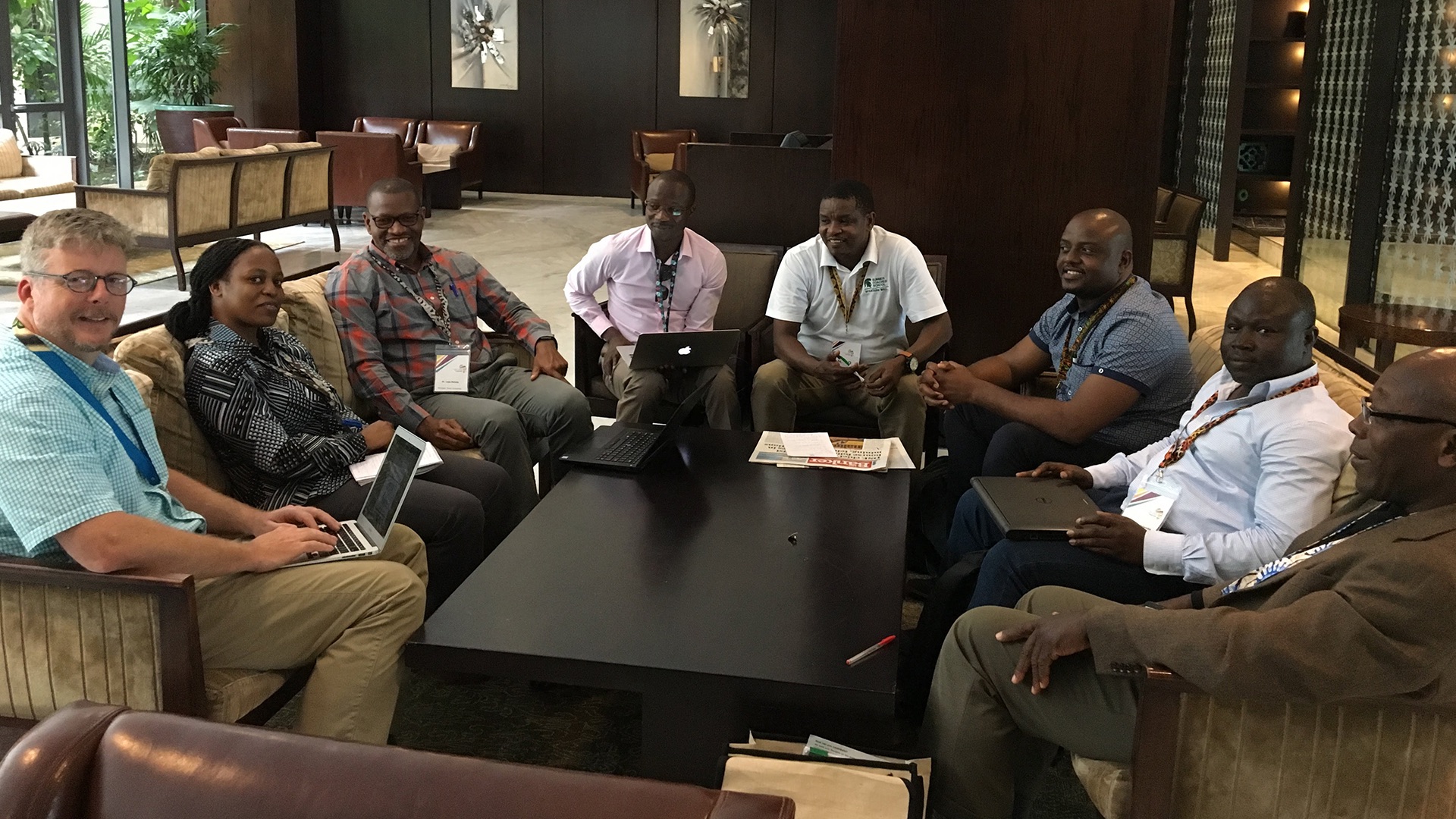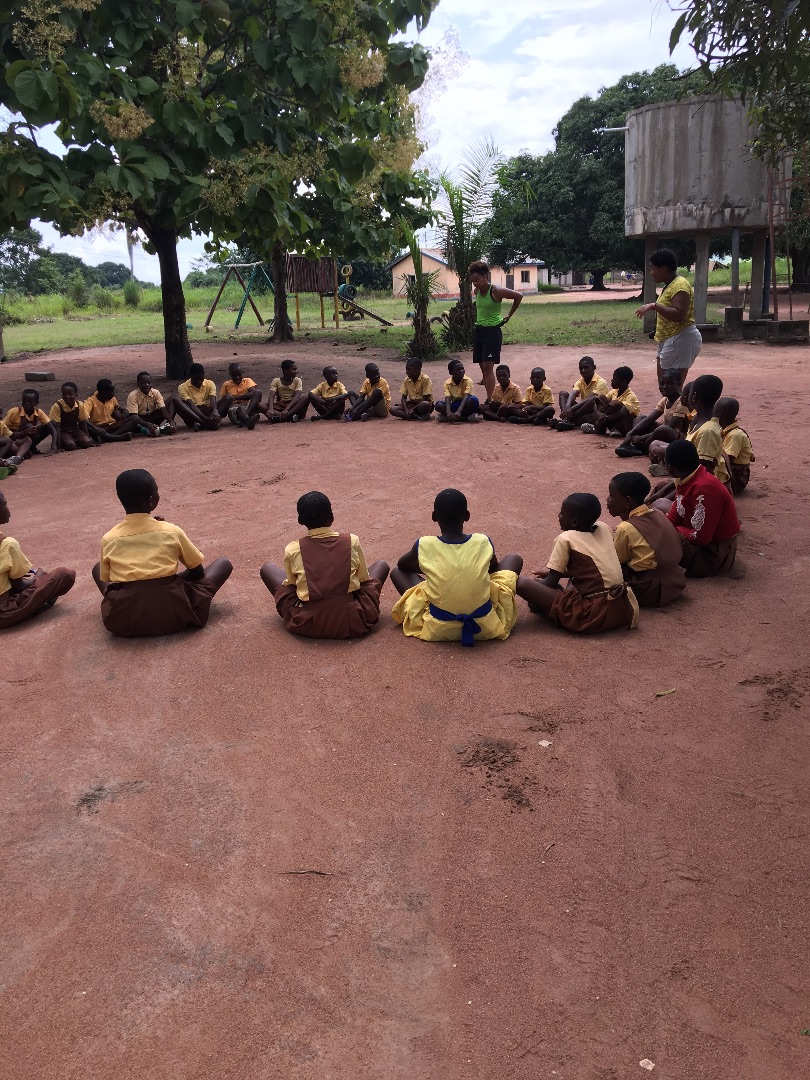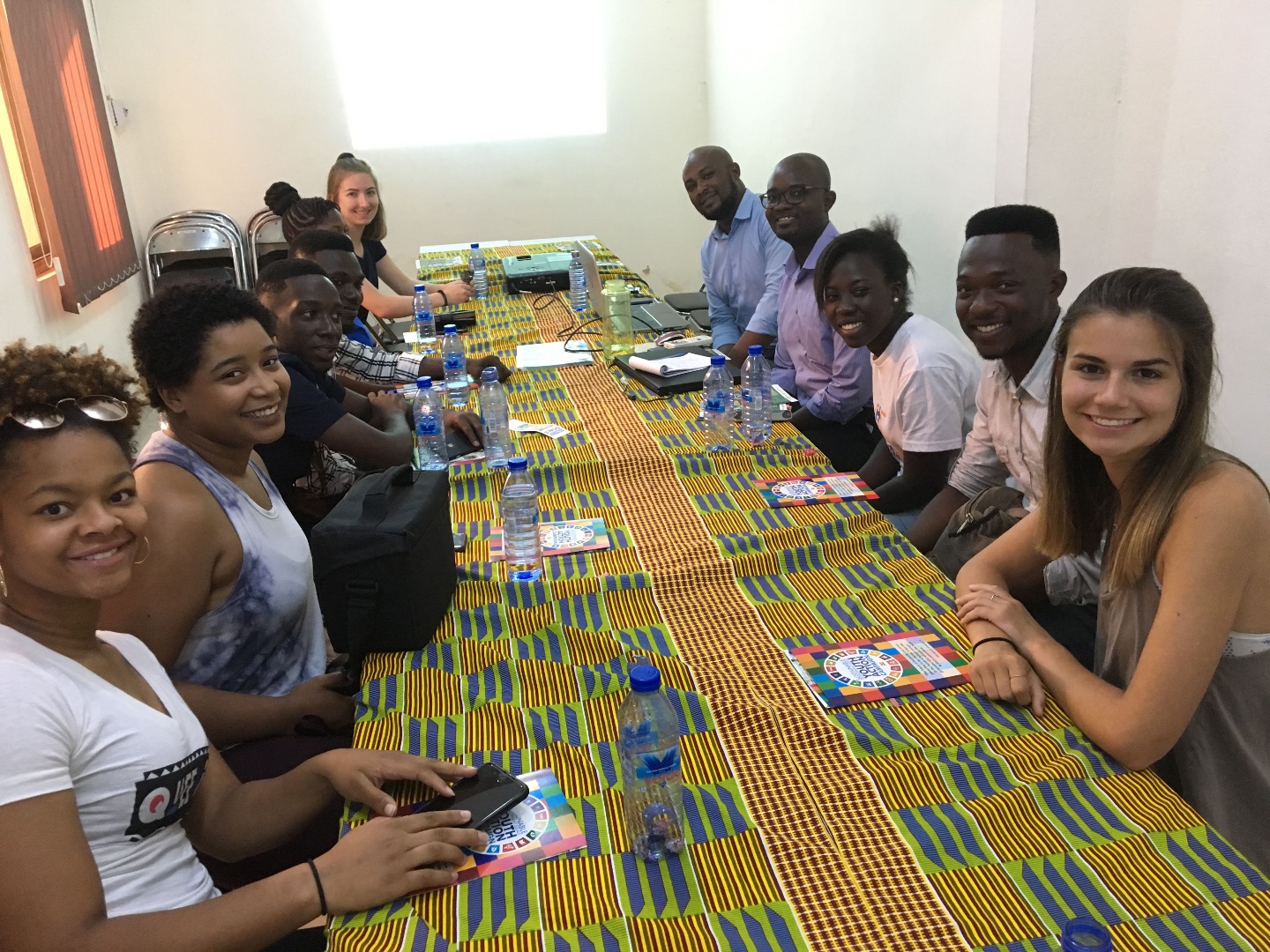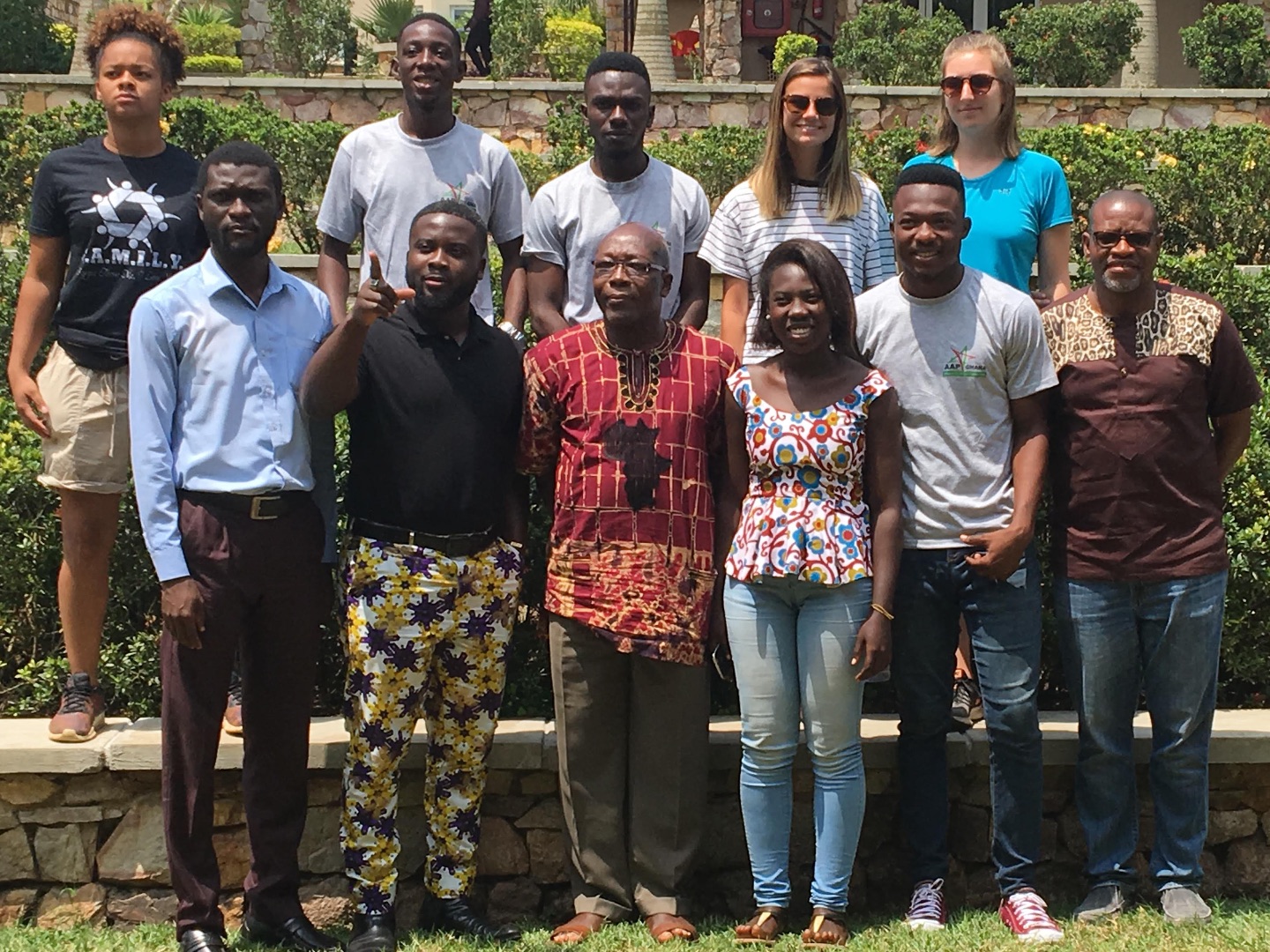Leapetswe Malete is an associate professor in the Department of Kinesiology at MSU. His research is on youth psychosocial development through sport and physical activity, focusing on youth in the U.S. and sub-Saharan Africa. He is a member of the Institute for the Study of Youth Sports which seeks to transform the face of youth sports in ways that maximize the physical, psychological and social benefits of sport participation while minimizing detrimental effects. In this interview with ISP, Malete speaks about his journey to MSU, as well as his work and vision as a Global Spartan.

Playing a sport got me into sport psychology. I played volleyball in middle school and in high school, at university, national league, and for the national team. That exposed me to international travel, coaching, and the like. Even as I continued with my undergraduate studies in the arts and humanities, I had this passion for sports and decided to look to start supporting sports and exercise psychology in Botswana.
My road to Michigan State started back in the ‘90s when I came here from Botswana to do my graduate studies. I ended up at Michigan State because of a scholarship from the University of Botswana to study sport and exercise psychology in order to go back and develop the program, which is exactly what I did.
Back home, I spent close to 16 years as a faculty at the University of Botswana, teaching sports psychology and doing research in youth development. I did work that is pan-Africanist in orientation, looking at youth across the African continent.
For my path back to MSU, I was looking to expand my horizons in a more international environment. I was pleasantly surprised when I was contacted about a possible position at MSU that entailed international dimensions of sport and exercise psychology. The position was in the Department of Kinesiology with a view to leading the global dimensions of the program. It was very exciting and I jumped on board, and that's how I ended up back here in 2016.

I look at sport as a vehicle for youth development because sports are a microcosm of society. Playing sport mirrors what happens in real life, and as a result its power goes beyond just simply playing the sport. Rather, you learn self-discipline, how to deal with failure, how to deal with losing, winning and other forms of adversity. You also learn about yourself, how to work with others, basic personal and social skills, how good you are. Sport is a very powerful tool and it enhances all kinds of valuable behaviors. If not well managed, it can also transmit negative values, like cheating, aggression and violence.
One of the things that we have been working on at the Institute for the Study of Youth Sports is raising local and global awareness about the positive elements of sports and how youth can have positive experiences through sport. We recognize that the commercialization of sports increasingly leads to early specialization and professionalization of youth sports, which places too much pressure on youth that may have detrimental effects on their personal growth and development.
We have learned that, no matter where you are in the world, there are basic reasons why children and youth play sports. Some of those top reasons relate to wanting to have fun, wanting to be with friends, opportunity for travel, personal growth, and similar aspects. Winning is important but does not feature prominently in these answers. It's there, but it's not the main reason. As youth grow older, competition and winning become prominent because that's what society emphasizes or values.
We are also looking at the value of sports beyond participation or competition, and how playing sports can be translated into various aspects of youth development, whether it can enhance academic achievement, help youth become better people, enhance personal and civic responsibility, create a better understanding of what constitutes ethical behavior, and learn how to overcome adversity. We hope that through sport, youth can learn how to deal with failure, rejection or being bullied.
In sports, when various groups of people get together from different cultural backgrounds, they get an opportunity to really appreciate one another and where they come from. Sport allows African American children to play with their white counterparts and youth from other different ethnicities and appreciate their similarities and differences even though they may not outwardly speak about that. Other examples where sport allows global interactions and cultural exchanges are through the Olympics, the Pan-African Games or Pan-American Games.
Those are huge opportunities for people from diverse cultures to be in the same environment for a specific period of time where they can see and learn about those cultures. This is a perfect setting to build cultural understanding, but we have to be intentional about it. This has relevance even within one country or state. For instance, when I drive from East Lansing to a game in Traverse City, I get to see a different context and a way of thinking that may be slightly different from the part of Michigan I live in or where I grew up.

When I came to Michigan State, I started a project looking at positive youth development through sports, physical activity and youth entrepreneurship. I look at the values and power of sports in helping the growth and development of a young person in various ways. I saw sports as a natural way for African youth to deal with youth development challenges, such as unemployment. This can also be applied to the United States, where some youth may not have access to high-quality education and don't see avenues for employment. And I thought there was an opportunity with lessons to be learned from sports that can be translated into youth development for them to create avenues for growth. The project seeks to nurture entrepreneurial mindset and creativity.
A project like this allows us to learn how to optimize positive youth experiences in various cultures across the African continent, as well as here in the United States. The cross-cultural perspectives could be very powerful in terms of building global understanding. For instance, it’s very easy to see Africa as this monolithic or homogenous continent with people and cultures that are just the same. Yes, there are lots of similarities but there is so much diversity. Understanding the diversity empowers us and is key to promoting global and cross-cultural understanding, but also just making sure people can learn from the continent. There is so much to learn from Africa.
Then when you involve the United States in the research, you notice similar issues and challenges. This is symbolic, but to get a sense of how far and how close we are to one another consider that it takes almost the same amount of time to fly directly from the east coast of the U.S. to Ghana as it does from Ghana to Botswana or from Ghana to Tanzania. You get to realize that even as people seem to be so far apart geographically and culturally they are much closer than we think and are more closely connected by so many other things. So that's one of the most exciting things about the research I'm doing.
To develop the project, I contacted some of my previous collaborators in Ghana, Tanzania and Botswana. We were able to get funding from the Alliance for African Partnership at MSU and work with a multidisciplinary team of colleagues from Community Sustainability at MSU, sport science, business and engineering in Botswana, Ghana and Tanzania. I have also been working on grants that involve other places such as Nigeria and the U.S.

These collaborative projects have been highly rewarding to me. I have learnt a lot from my colleagues in the different African regions. I have developed a better appreciation of how similar and diverse the African continent is and that youth from all these regions face similar challenges, express the same joy and hold similar dreams or aspirations as the youth in Michigan. Participation in sports can offer hope that goes beyond the sports enterprise. My research could take them a step closer to seeing their aspirations.
When you look at resilience, teamwork or any of those variables that you may want to study, you want to understand how youth in Michigan, Florida or California cope with adversity. What are their aspirations? How do they grow and develop? Then you go to Ghana, Tanzania and Botswana and look at youth in those contexts. Those cross-cultural dimensions become very important in terms of appreciating whether the human endeavor—regardless of where you are—is the same. Then you realize the youth have similar aspirations and similar dreams, even though they may be in different places and environments.

Another important aspect to look at is how societies promote values through sports. Does one society emphasize competition and winning over participation, recreation and enjoying the company of others? And why does that happen? For instance, understanding that one society may be emphasizing winning and competition over other values is not about the good and bad of the society, but about getting a better understanding of how youth sports are organized in that culture so as to develop better strategies to engender optimal growth and development of youth.
Through studies in Botswana, we have learned that sports are predominantly amateur and emphasize participation and recreation with public financing. Outside of public provision, there's very limited access. In other words, youth may only play sports as part of their education in schools and universities. As a result, there's limited access when you get to highest/elite levels of competition. Consequently, a lot of sport talent is lost. At the same time there are huge benefits from that kind of arrangement in the sense that sports are accessible to as many willing children as possible within the public arena.
In the United States, you find that the public provision of sport may be highly limited because there's a lot of emphasis on agency-arranged programs that are self-funded, where parents pay providers for children to play. Also, commercial sports are huge because it is a large industry that generates billions of dollars for the U.S. economy. Those factors skew access and opportunity to those who can afford to pay. It is good business and may be good for the economy of a country, but it leaves a lot of communities behind, especially ethnic minorities and other historically disadvantaged groups.
First of all, MSU is a much bigger university. Working in this kind of environment, where there's a much larger community of scholars, gave me an opportunity to challenge myself.
MSU is also a tier-one research university, highly research-led, with a lot of global research programs that span different parts of the world. The resources are also significantly larger, and that has given me the opportunity to do the kind of work that I've always wanted to do. I'm talking about the research funding for different countries in and across Africa. I did collaborations in Africa before, but not at the scale that I'm doing now with MSU support.
This is a huge journey for me and I'm very grateful for it. I'm also learning a lot about different education systems within the United States and able to compare with other parts of the world including Asia, Africa and Europe. I can reflect and take the good from Botswana and the United States, and learn from the not-so-good from both contexts.
MSU gave me the opportunity to have a bird's-eye view of the globe.
Interview has been edited for length and clarity.